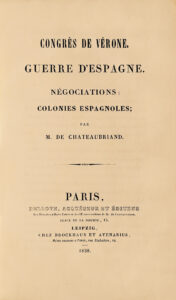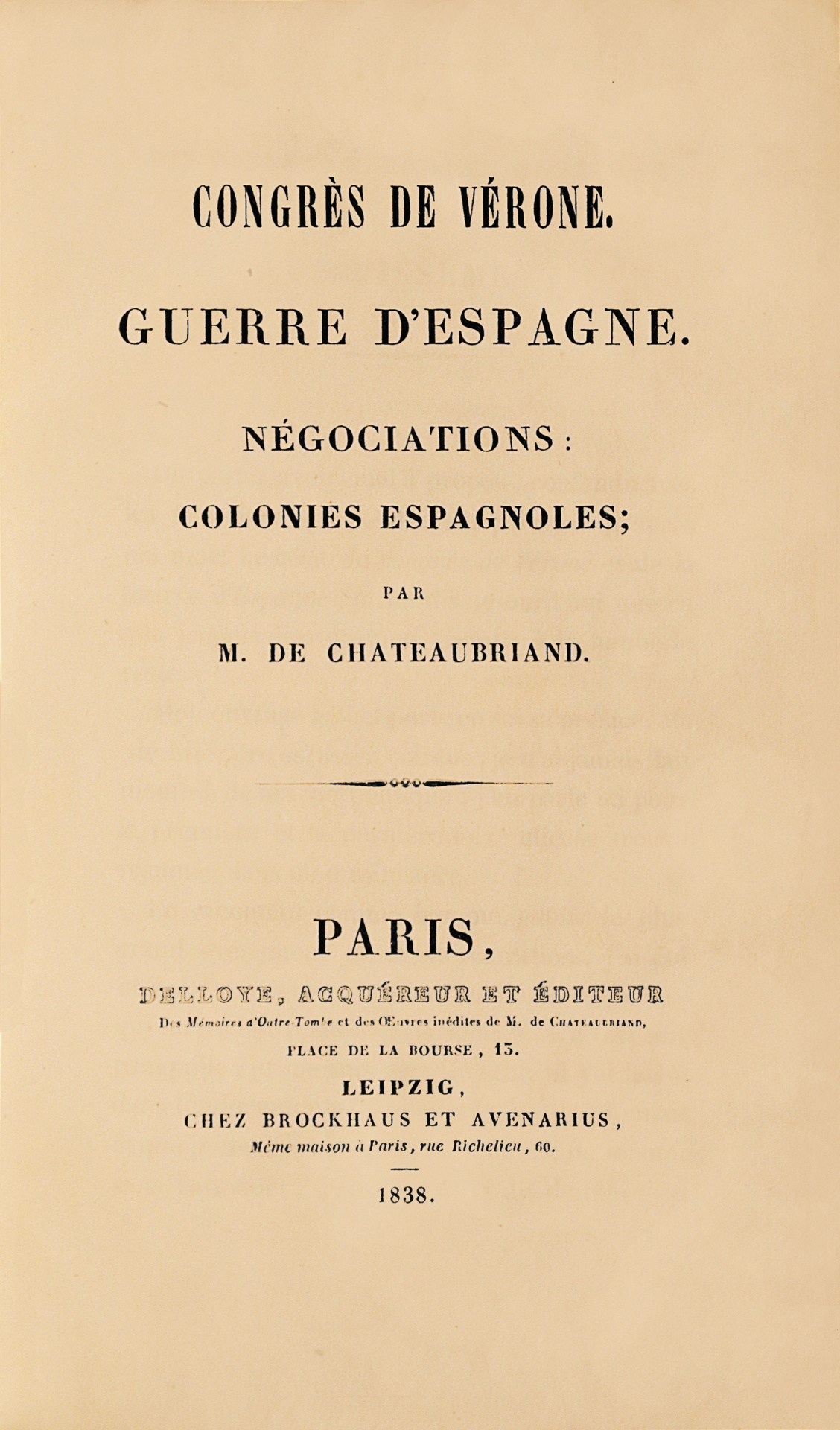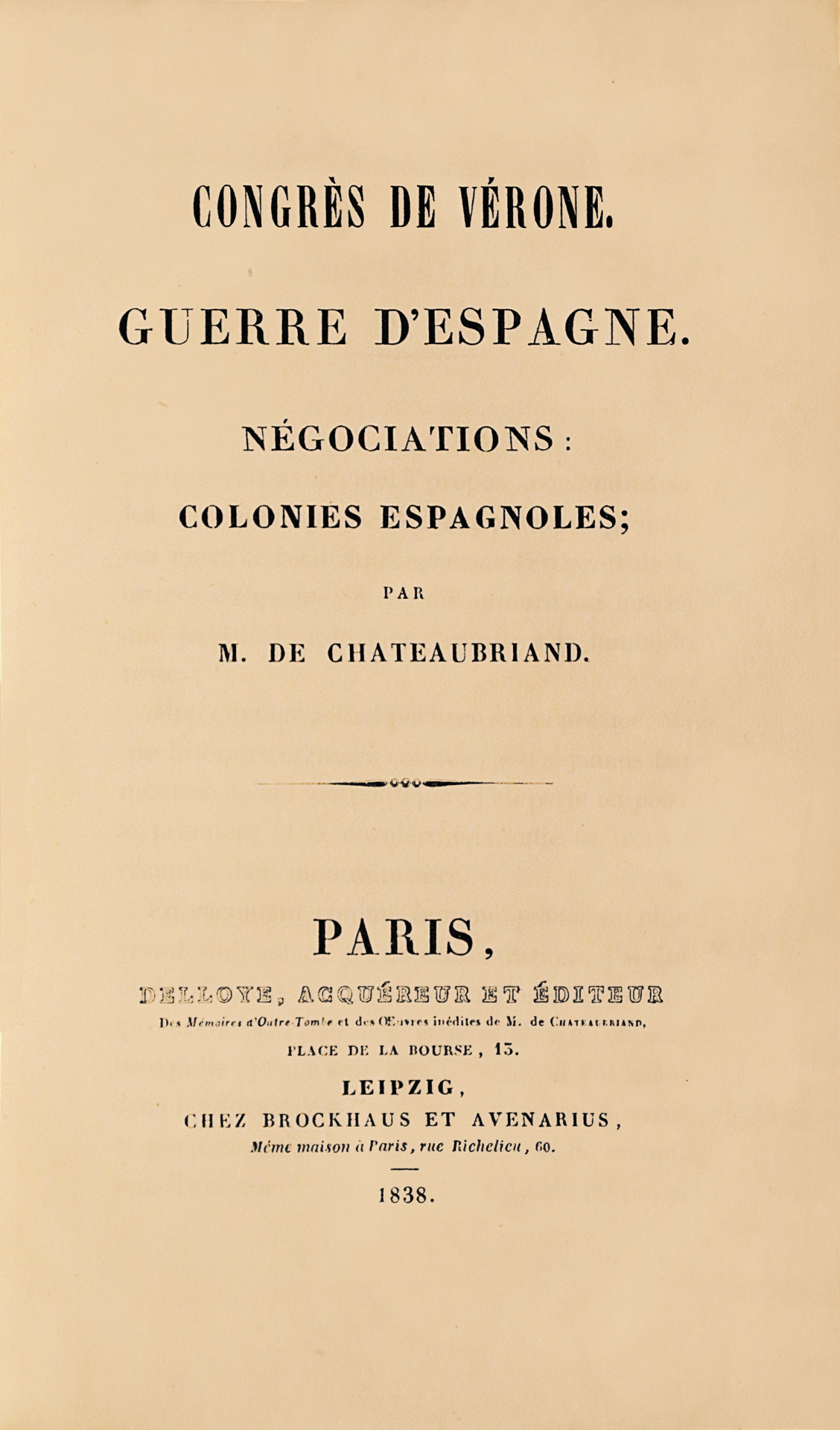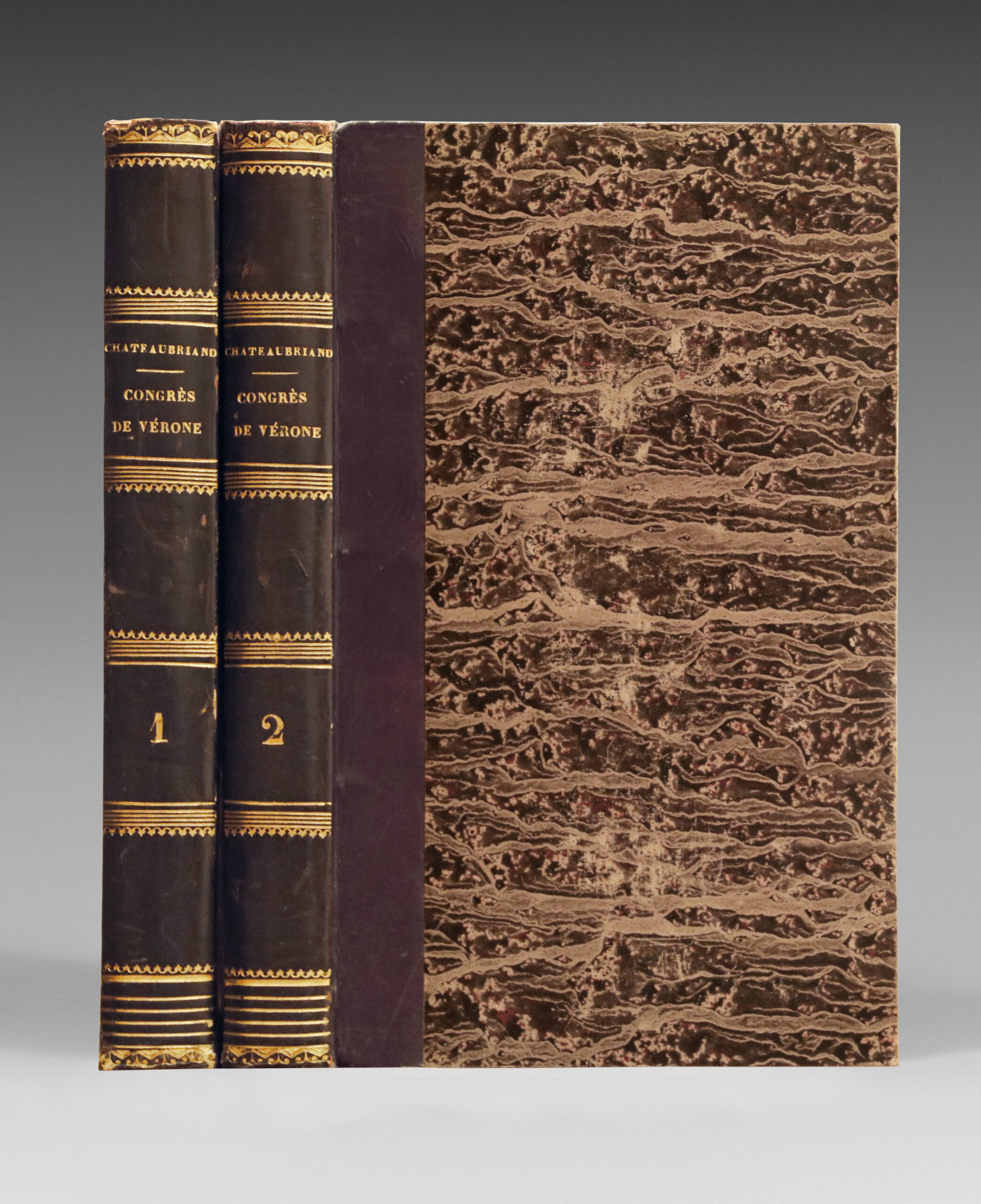Paris, chez Delloye et Leipzig chez Brockhaus et Avenarius, 1838.
2 volumes 8vo [208 x 125 mm] of : I/(2) ll., III pp., 488 pp.; II/ (2) ll., 476 pp., (2) ll. A few browned ll. in volume 2. Aubergine half-calf, flat spines decorated, sprinkled edges. Contemporary binding.
First edition of this “text which importance ended up appearing”.
Vicaire, Manuel de l’amateur, I, 289 ; Carteret, I, 163 ; Sabin 12252.
“Text which importance ended up appearing, it is indeed a part, and not negligible, of ‘Mémoires d’Outre-tombe.’” (Clouzot, p. 66)
Chateaubriand published it in 1838 to justify his activity as Minister of Foreign Affairs to the public opinion.
We recognize the dazzling style of the writer in it, the polemists’ verve, the imagination of the poet. The book contains many passages from Mémoires d’Outre-tombe, Chateaubriand having hesitated for a long time to reinstate this text in his major work.
“This book is by no means void of interest; it is really written with great cleverness; and although somewhat affected, and very much filled with egotism, as all such works must indeed be from their very nature, yet it is lively, and full of original pieces, in support of the author’s statements respecting the important transactions in which he was engaged. Of the three parts into which it is divided, -the Congress of Verona, the Spanish War, and the Spanish Colonies, – the two first are by far the most interesting; and it is to the matters relating to them that we shall feel it necessary to direct the reader’s attention”. (The Edinburgh Review: Or Critical Journal, vol. 67, p. 587).
“What the ambassador reveals about the Congress of Verona, the wishes, the uncertainties, and the fears of so many ministers and so many kings; the confidences he thought he could make to the public in the anticipation of history’s heritage, so many great paintings by the illustrious actors he portrays, so puny and so small by their passions, all this is done to inspire France with a sort of immense pride of herself. This book will have the effect of revealing to the last of the ‘cabinets de lecture’ what only the politicians knew, the universal terror which attached itself to any movements of France, while it breathed for the first time, hardly released from the brazen embrace of both invasions.” (Revue des deux mondes, 1838, II, p. 478)
“We know that in Verona, in 1823, the ‘Congrès des souverains d’Europe’ raised a problem similar to that of the Congress of Vienna and the Holy Alliance; how to prevent the spread and triumph of ideas of freedom of national independence. In particular, it was to intervene in Spain to restore King Ferdinand VII to the throne.
The brilliancy of this work, the reasoning and peroration it contains, is supported by a warm and colorful language, in which reason of State blends with personal considerations.”
(Laffont-Bompiani).
Copy complete with the list of subscribers at the end of the second volume.
A fine copy preserved in its elegant contemporary binding.



